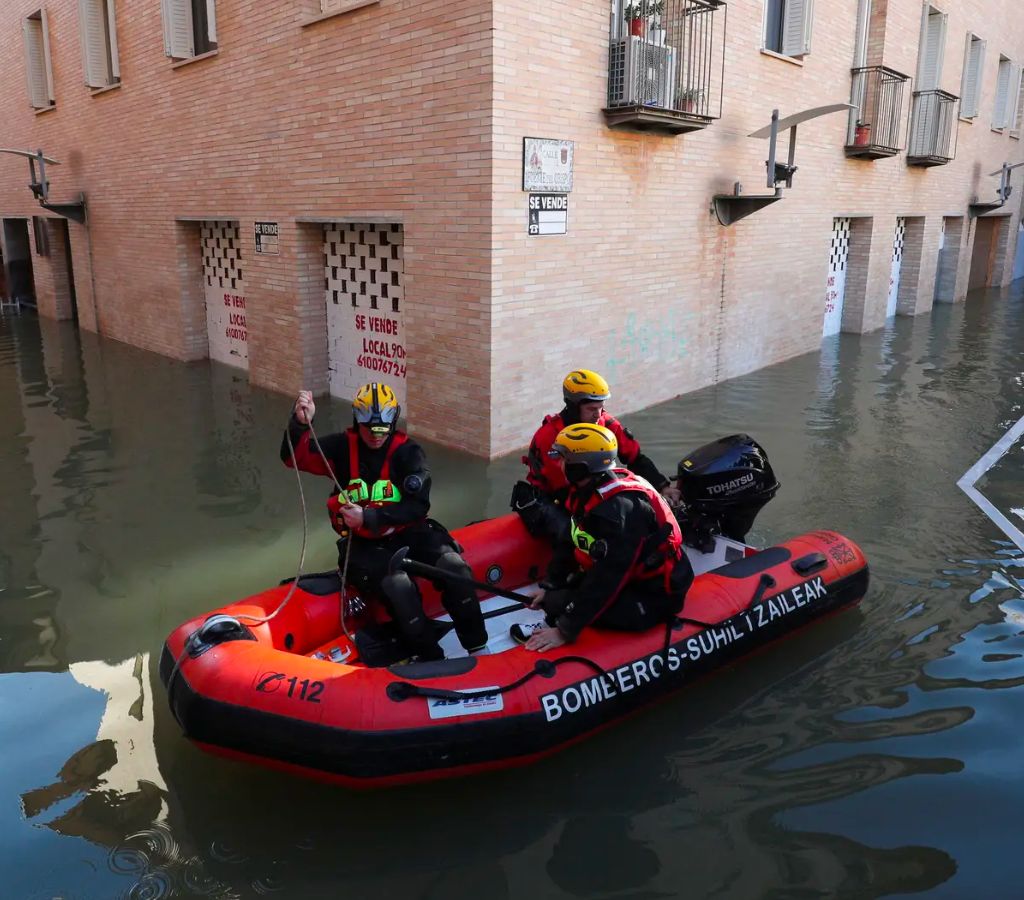Did you know that our growing methods reduce Greenhouse gas (GHG) emissions while fostering healthy ecosystems?
Overview
Let's preserve the balance of the planet
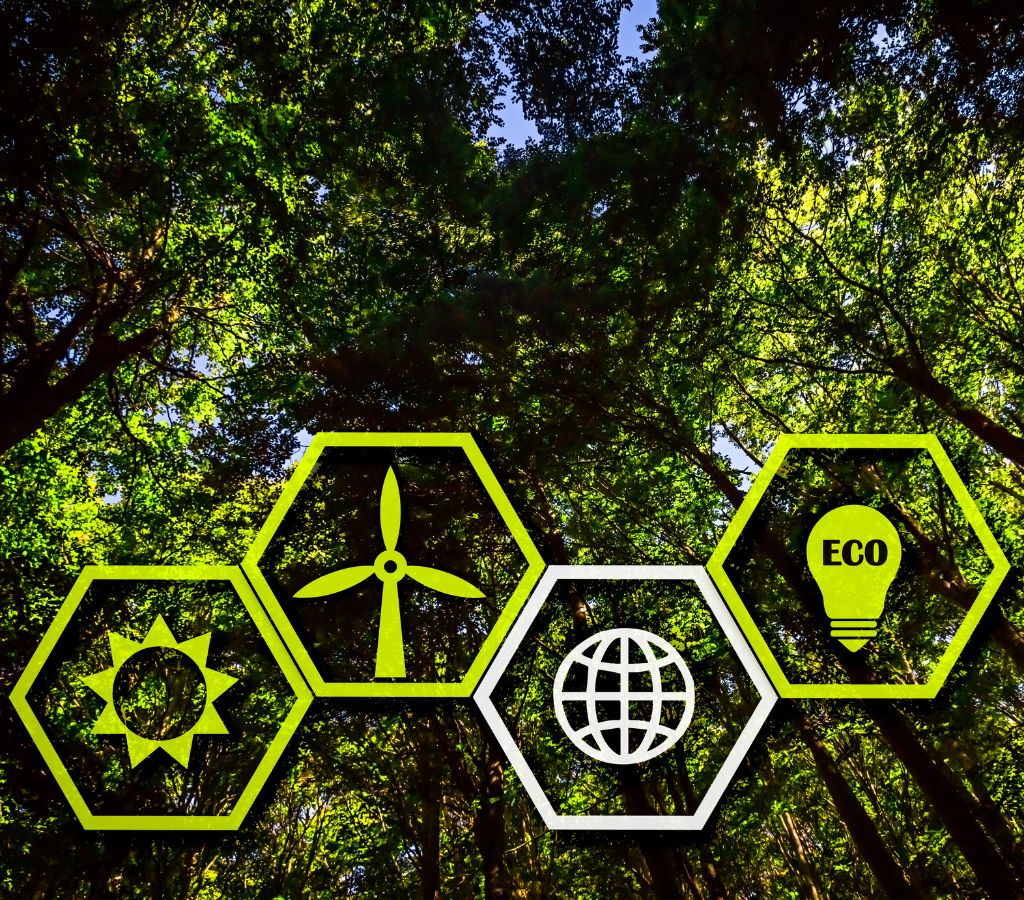
- Moving away from fossil fuels is essential to preserving our planet. Adopting green energy ensures a cleaner future and reduces our dependence on unsustainable resources. Responsible resource management and a circular approach are key to mitigating environmental impacts. Reducing industrial emissions is a vital step in preventing climate change and its effects.
By prioritizing responsible practices, we create a more efficient and sustainable economy in the long run.
Weaving a Climate of Hope: Global Commitment for a Resilient and Equitable Future
Sustainable resource management is the key to a prosperous tomorrow. It is our global commitment to ensure a future where prosperity coexists with environmental responsibility.
Circular waste management closes the loop by turning waste into valuable resources. By mitigating pollution, we move towards a balance where environmental efficiency and social equity converge.
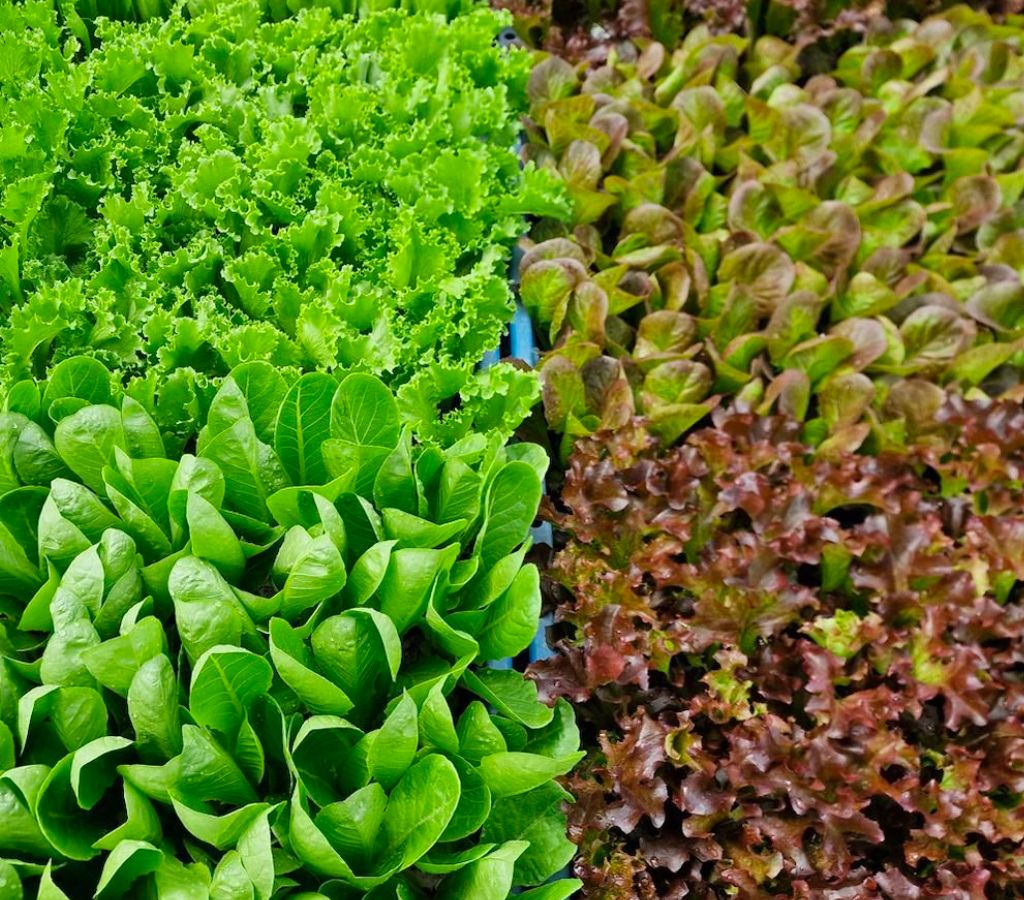
- The reduction of greenhouse gas emissions
- Waste reduction and the incorporation of continuous improvements
- An increased use of circular waste management in the supply chain
Taking responsibility for our environment is a collective commitment
The use of fossil fuels emits greenhouse gases that directly contribute to global warming and subsequently, the increase in adverse weather events, such as floods and hurricanes.
The Ecological Footprint (EF), derived from the resources consumed and waste generated in our daily activities, serves as a tangible marker of our impact on the environment.

In the face of an unprecedented climate crisis, we must reduce our environmental footprint and safeguard ecosystems. We must focus on achieving climate stability and the balance of our planet that will be inherited by our children.
Let’s protect our planet, our common home!
If you want to know more
Achievements and positive developments for our environment and climate
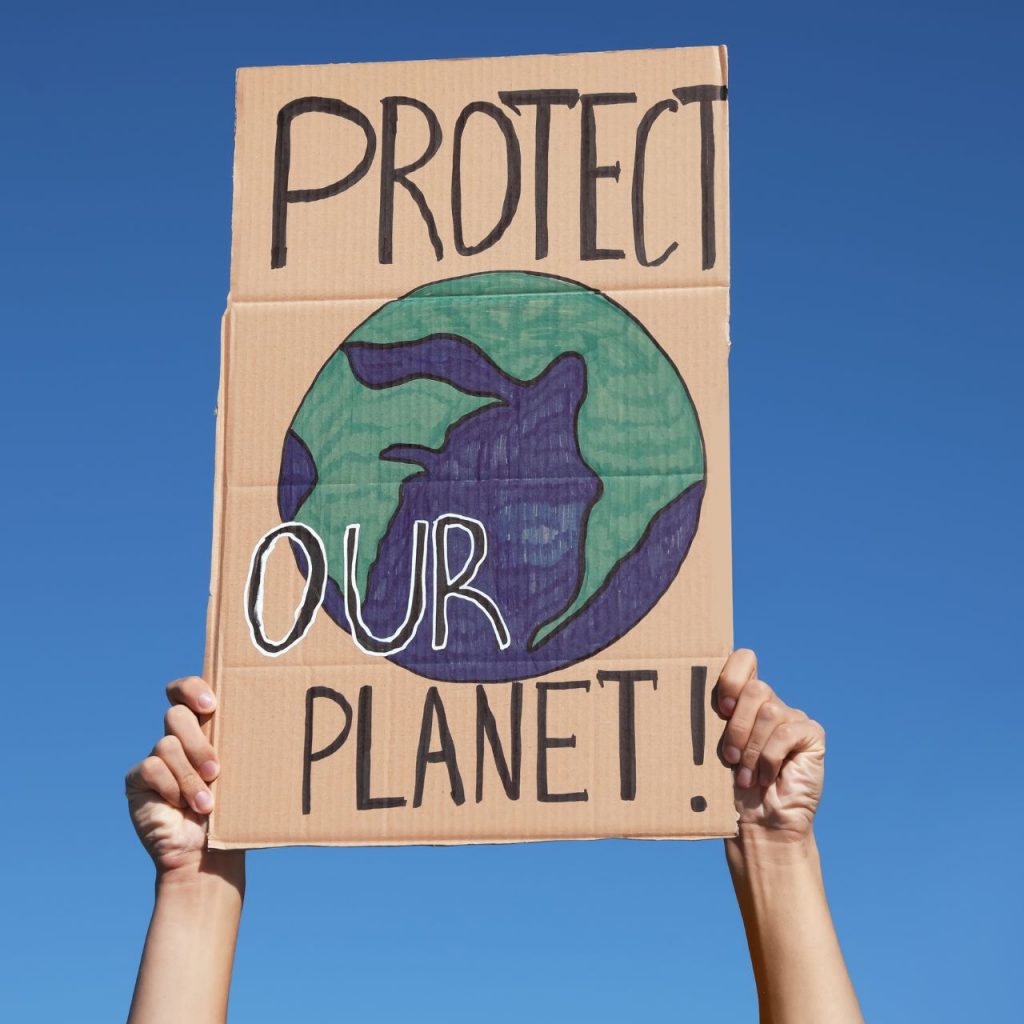
In recent years, important achievements have been made in various sectors, such as energy production and transport, to reduce our impact on the climate. However, much remains to be done, and we need to continue to improve in all sectors, in particular in agriculture.
Renewables, key to tackling the climate crisis, are rapidly expanding worldwide. To limit warming to 1.5º, the world requires three times more renewable energy capacity by 2030, and must double the global average annual rate of energy efficiency every year until 2030.
Pending challenges to restore the environmental balance on our planet
Industrial Greenhouse Gas (GHG) Emissions
Industrial Greenhouse Gas (GHG) Emissions
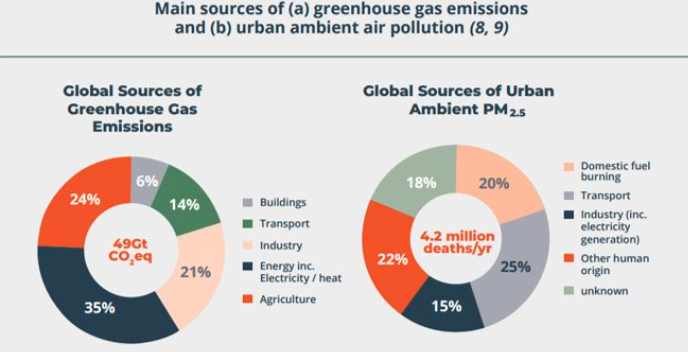
Industrial processes based on fossil fuels combustion exploit our planet’s natural resources excessively and contribute to greenhouse effects by retaining heat in our atmosphere. This phenomenon triggers global warming and causes significant climate disruptions, such as prolonged droughts, floods, sea level rise, or fires. In addition, it pollutes the environment, harming human health and ecosystems. Spain is in an extreme situation and is warming at a faster rate than the global average. If we manage to significantly reduce emissions, climate change impacts will be less severe, resulting in reducing social, economic and environmental losses.
Unsustainable resource management
Unsustainable resource management
- Globally, natural resources overexploitation and uncontrolled production generate large-scale environmental impacts, from deforestation to biodiversity loss.
- At local level, unsustainable practices affect air and water quality, putting adjacent ecosystems’ and communities’ health at risk.
- At an individual level, excessive consumption and waste contribute to residues’ accumulation and harmful ecological footprint.
Wildfires
Wildfires
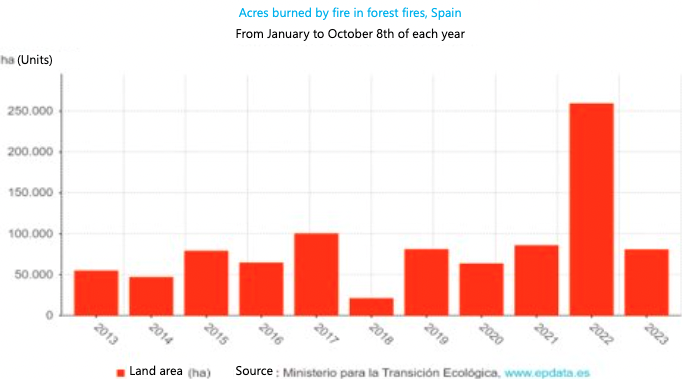
Forest fires in Spain burned 81,005.56 hectares between January and October 2023. In the same period of 2022, 259,591.21 hectares were reduced to ashes.
It is in our hands to care for our planet’s health
Promoting local environmental conservation initiatives and participating in community reforestation projects, among others, are tangible actions that make a difference. Gaining knowledge about how our actions, both individual and collective, influence the environment gives us the power to create meaningful change.
As a company committed to protecting the environment, we implement eco-friendly technologies. Our commitment is reflected in concrete actions that seek to contribute positively to the well-being of the planet:
- We use 100% renewable energy sources (solar, etc.).
- We reduce by up to 96% the usage of land and water compared to traditional methods providing a solution to reforestation.
- We use circular supplies wherever possible (CO2, etc.).
- We secure local fresh food production despite negative climate change impacts.
- We adopt compostable packaging solutions by default.
- We primarily use sustainable transport thanks to a fleet of electric vehicles.
- We significantly reduce waste generation.
If you'd like to dive deeper
- What is renewable energy? – United Nations
- Global Renewables and Energy Efficiency Pledge – European Commission (2023)
- Circular economy: definition, importance and benefits – European Parliament (2023)
- UNEP Food Waste Index Report 2021 – UNEP (2021)
- Scientific Assessment of Ozone Depletion – United Nations Environment Programme (2022)
- Forests the size of France have regrown in the last 20 years – WWF (2021)
- The human right to a clean, healthy and sustainable environment – UN (2022)
- Air pollution deaths attributable to fossil fuels: observational and modelling study – The BMJ (2023)
- Earth Overshoot Day – Global Footprint Network (2023)
- FAO and UNEP launch new hub to help countries prevent wildfires – FAO (2023)
- Spreading like Wildfire – The Rising Threat of Extraordinary Landscape Fires – UNEP (2022)
- Incendios forestales, en datos, estadísticas y cifras – EP Data (2023)
- Los sumideros de carbono en España: ¿Qué papel tienen y por qué debemos protegerlos? – Greenpeace Spain (2021)
- RTVE (2010), Comprar tirar comprar

